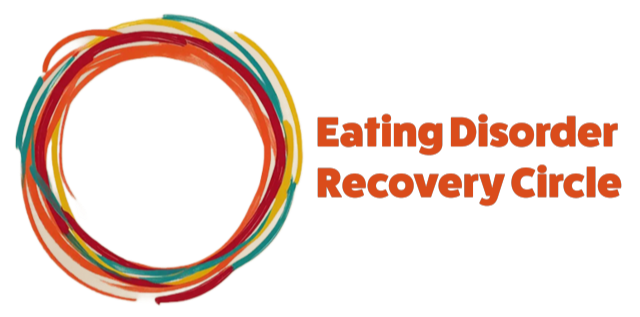How to Set Boundaries with People Who Don’t Understand Recovery
Mar 08, 2025Setting boundaries in recovery can feel intimidating—especially if you’re used to people-pleasing, avoiding conflict, or struggling with self-worth. You might fear upsetting others, being judged, or not being taken seriously.
But boundaries are not selfish—they are a necessary part of protecting your recovery. You have the right to decide what conversations, behaviours, and environments support your healing—and to say no to anything that doesn’t.
It’s also perfectly okay to be open about your recovery. If it feels right, you can state your boundaries confidently and let people know that you’re following professional advice as part of your healing.
If setting boundaries brings up guilt, fear, or self-doubt, check the Feelings Navigator for tools to help you navigate these emotions.
Step 1: Give Yourself Permission to Set Boundaries
If you’re used to putting others first, the idea of setting boundaries might feel wrong. You might think:
❌ "I don't want to upset anyone."
❌ "They won’t take me seriously."
❌ "I should just deal with it."
💡 Reframe these thoughts:
✔ "My recovery is valid, and I deserve to protect it."
✔ "People don’t have to understand my boundaries for them to be necessary."
✔ "I can set limits without explaining myself, but I also have the option to be open about my recovery."
📌 If you feel guilty about setting boundaries, share your experience inside The Circle for reassurance and support.
Step 2: Identify Where You Need Boundaries
Think about the situations, people, or conversations that make recovery harder for you. Your boundaries should protect you from these triggers.
🔹 Do certain people comment on your food, weight, or body?
🔹 Are family or friends pressuring you to eat or not eat in a certain way?
🔹 Does diet talk or weight-focused conversation make you feel anxious?
🔹 Do certain social settings make you feel judged or uncomfortable?
💡 Boundaries are about creating a recovery-friendly environment—not controlling others, but protecting yourself.
📌 If you need help identifying what makes recovery harder for you, check the Feelings Navigator for tools on self-awareness and emotional triggers.
Step 3: How to Communicate Your Boundaries
You don’t need to justify your recovery choices to anyone—but clearly stating your boundaries makes it easier for others to respect them (even if they don’t fully understand).
🔹 If someone makes unwanted comments about your food or body:
✔ “I’d appreciate it if we didn’t talk about my body—it’s not helpful for me.”
✔ “I’m following professional advice in my recovery, and I’d rather not have these conversations.”
🔹 If someone pressures you to eat or not eat something:
✔ “I’m working with a professional on my recovery, and I’m following their guidance.”
✔ “I appreciate your concern, but I need to make my own food choices.”
🔹 If people engage in triggering diet talk:
✔ “I’d rather not talk about weight or dieting—it’s not helpful for me.”
✔ “I’m focusing on a different approach to health, and these conversations don’t align with that.”
💡 You don’t owe anyone a deep explanation, but if it helps you feel more comfortable, you can let them know that your recovery is guided by professional support.
📌 If you struggle with feeling confident when setting boundaries, ask for support inside The Circle.
Step 4: Expect Resistance—And Hold Your Ground
Not everyone will understand or respect your boundaries right away. Some people might:
❌ Ignore your request and keep making triggering comments.
❌ Push back and tell you you’re being ‘too sensitive.’
❌ Try to justify their behaviour by saying they’re just ‘helping’ or ‘caring.’
🚫 You do not need their approval to protect your recovery.
🚫 People’s reactions are about them, not you.
🚫 If someone continues to ignore your boundaries, you have the right to distance yourself.
💡 If you feel pressured to ‘just let it go,’ remind yourself: My recovery comes first.
📌 If people in your life don’t respect your boundaries, discuss strategies with others inside The Circle.
Step 5: Strengthen Your Confidence in Setting Boundaries
If setting boundaries feels terrifying, that’s okay. Confidence comes with practice.
✔ Start small—practice boundary-setting in low-risk situations before tackling bigger challenges.
✔ Use role-play—imagine how you’ll respond if someone crosses a boundary.
✔ Remind yourself why boundaries matter—you are not being difficult, you are protecting your mental and physical health.
💡 Boundaries are like a muscle—the more you use them, the stronger they become.
📌 For more support in building confidence, visit the Feelings Navigator for tools on self-worth and self-trust.
Step 6: Lean on Supportive People
Not everyone in your life will understand recovery, but that doesn’t mean you’re alone. You have a space where your boundaries are respected.
✔ Talk to people inside The Circle who understand the importance of boundaries in recovery.
✔ Surround yourself with those who respect your choices, even if they don’t fully understand.
✔ Limit time with people who repeatedly cross your boundaries—your peace is worth it.
📌 If setting boundaries feels isolating, remind yourself that you have support inside The Circle.
When to Seek Extra Support
If setting boundaries feels impossible or creates significant distress, you don’t have to figure it out alone.
🔹 Talk to a recovery coach or therapist if boundary-setting brings up intense fear or guilt.
🔹 Share your challenges inside The Circle for support from people who understand.
🔹 Remind yourself: Boundaries are a sign of self-respect, not selfishness.
Next Steps
🎯 If setting boundaries brings up guilt, check the Feelings Navigator for tools on self-worth.
🎯 If you need help asking for support, read "How to Ask for Support Without Feeling Like a Burden".
🎯 Join The Circle to talk about your experiences and get advice from others who are also navigating boundary-setting in recovery.
Final Reminder
🚀 You are allowed to set boundaries. You are allowed to protect your recovery. You are allowed to put yourself first.
Your healing is worth it. ❤️

